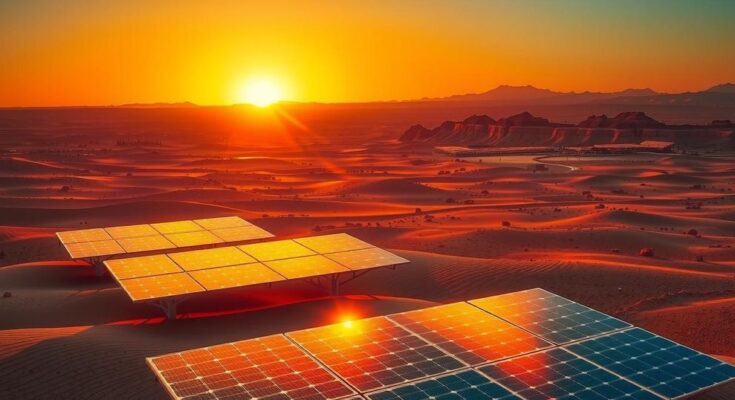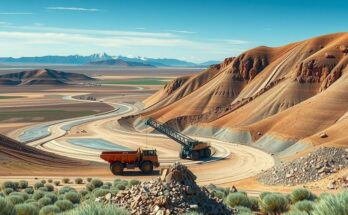The African Development Bank Group and Eritrea have launched the Desert to Power Eritrea project, investing $19.5 million to establish mini-grids that will generate 12 MW of electricity and improve energy access for over 235,000 people. The initiative, aligning with Eritrea’s National Energy Policy, also supports local companies and empowers communities through capacity building. Amid historical challenges, this project symbolizes hope for economic transformation and sustainable development in Eritrea.
The African Development Bank Group, in collaboration with the Eritrean government, has initiated a significant project to improve the nation’s energy framework. On March 10, 2025, a pivotal agreement was established to finance the Desert to Power Eritrea 12 MW Mini Grid Project, representing a considerable advancement in sustainable energy efforts within the region.
The financial allocation of $19.5 million, drawn from the Bank Group’s Transitional Support Facility, is intended to create mini-grids capable of producing 12 MW of electricity across Teseney (6 MW), Kerekebet (3 MW), and Barentu (3 MW). This development is projected to enhance energy accessibility for over 235,000 Eritreans, including 20% comprising women and youth.
The project will be executed by the Eritrean Ministry of Energy, the Eritrea Electricity Corporation, alongside local enterprises, with oversight from a technical consulting firm. This initiative aims to support residential energies, small farms, agro-processing areas, and water supply systems, as well as facilitate access to energy for over 160 schools and 90 health centers in the Gash Barka region.
To promote sustainability and empower local communities, 25 local businesses will receive essential training and equipment, thereby fostering economic growth and ensuring the maintenance of the energy infrastructure.
The initiative is in line with the African Development Bank’s Interim Country Strategy Paper 2022-2024 for Eritrea, which prioritizes sustainable infrastructure development to bolster agricultural value chains and diversify the economy. Additionally, it aligns with the 2018 Eritrea National Energy Policy that seeks to raise electrification rates and ensure renewable energy constitutes 20% of the electric power by 2030.
Eritrea has faced significant socioeconomic challenges due to ongoing conflicts and economic instability. However, recent peace initiatives and regional collaborations have created new pathways for growth. The Desert to Power initiative serves as a crucial opportunity to address infrastructural challenges and foster economic change.
Overall, the Desert to Power Eritrea 12 MW Mini Grid Project is more than an energy solution; it embodies hope for sustainable development and economic resilience in Eritrea, leveraging renewable resources to fulfill current energy demands while paving the way for a diversified and robust economy.
In conclusion, the Desert to Power Eritrea 12 MW Mini Grid Project represents a transformative effort in enhancing Eritrea’s energy landscape. Through substantial investment and collaboration, this initiative promises to improve energy access for thousands while fostering local capacity and economic growth. As part of broader strategic frameworks, it positions the country toward a sustainable and resilient future, even amidst historical challenges.
Original Source: fasi.eu




